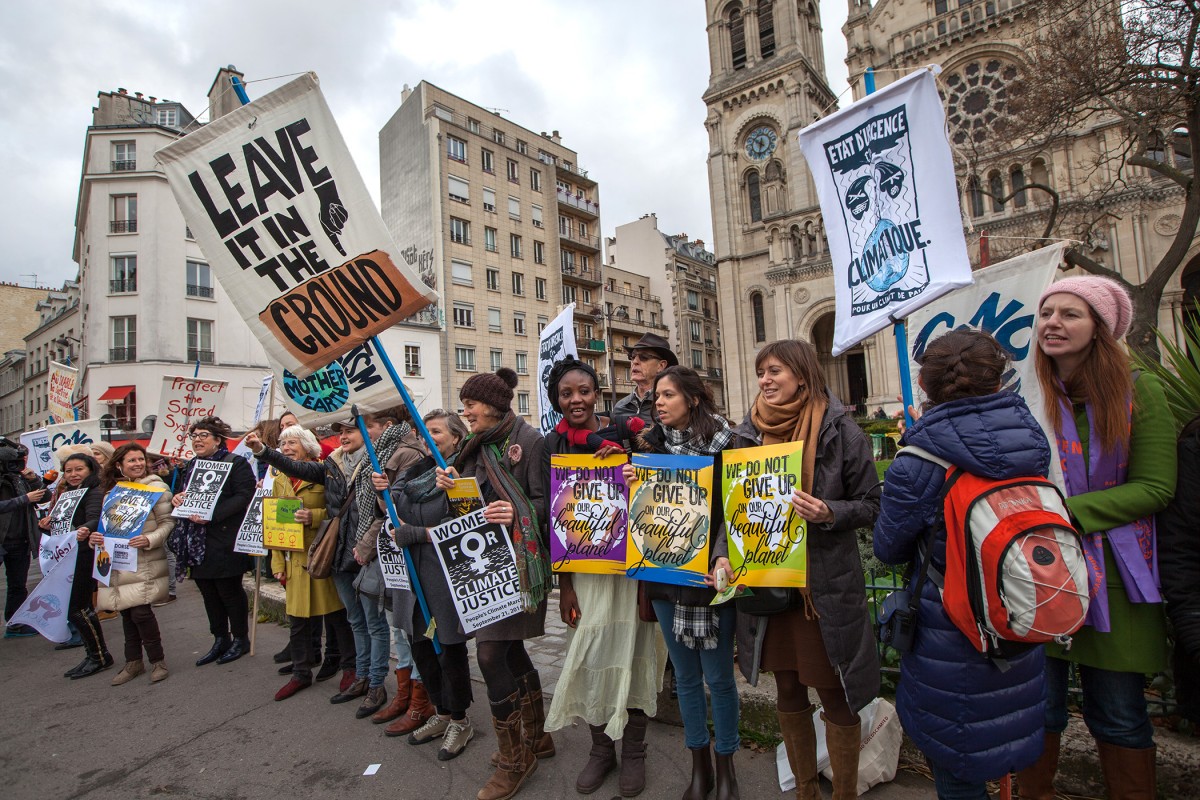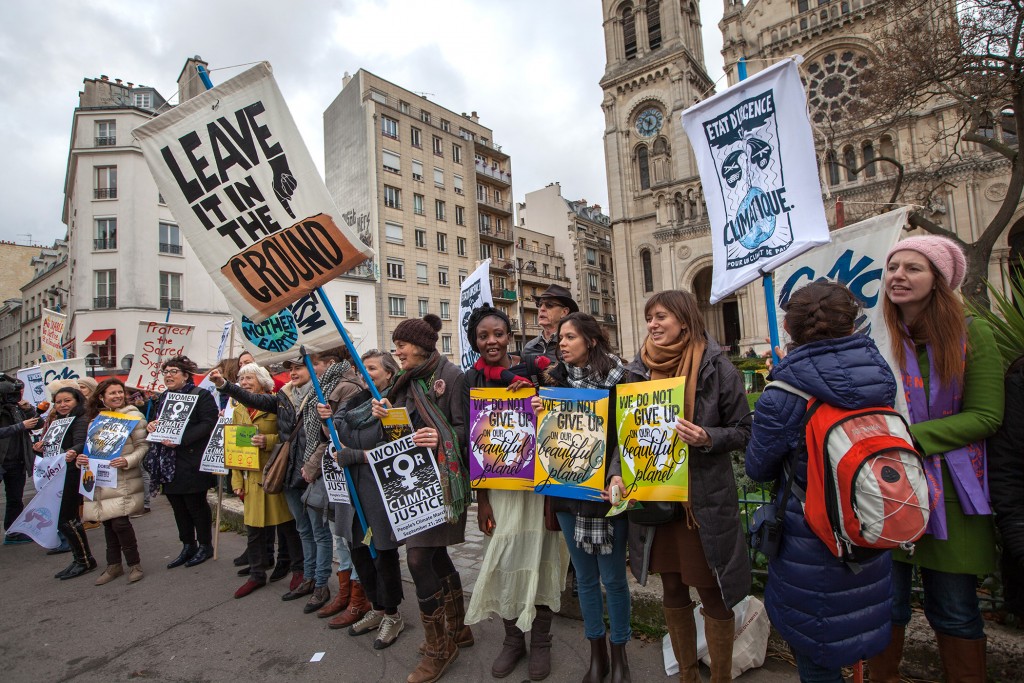
A reflection by Fr. Idara Otu, MSP, on the Second Sunday of Advent: Baruch 5.1-9; Philippians 1.3-6, 8-11; Luke 3.1-6
From November 30 to December 11, 2015, many world leaders will be gathered in Paris for the 21st Conference of Parties (COP21) of the UN Framework Convention on Climate Change. COP21 has been described as the world’s last, best hope on forging a new international agreement on climate change.
Just prior to COP21, thousands in Paris formed a human chain along the route of the city’s banned climate march, and hundreds of pairs of shoes—including those of Pope Francis—filled the Place de la République to represent the feet of all who could not take part in the march. These acts of solidarity with the cry of the Earth and cry of the poor sent a strong message to world leaders to reach a binding resolution to keep global warming below 2 degrees Celsius.
The placing of the shoes in Paris was not only a symbolic gesture but also a prophetic action calling humanity to conversion (metanoia)—an eco-metanoia. Pope Francis joined other ecological voices, even as he did with the issuance of Laudato Si, to awaken humanity to the urgency of a mutually enhancing relationship with the rest of creation.
As we begin the second week of Advent, we are awakened by the cry of the prophets Baruch and John the Baptist calling us all to conversion. They use the images of mountains and hills that need to be made low, valleys that ought to be filled, and crooked paths that must be made straight, as symbols of repentance. Advent is a time when we are reminded of the Christian call and journey to repentance.
In proclaiming a “baptism of repentance for the forgiveness of sins” (Luke 3:3), John employs familiar images to paint the landscape of the human heart. He is very much aware that the human heart is sometimes characterized by valleys of unforgiveness, hills of pride, mountains of self-centeredness, and crooked paths of self-righteousness. Perhaps we could ask ourselves: What are the valleys in my heart that need to be filled before Christmas? What are the hills and mountains in my life that must be made low? What are my crooked attitudes and behavior that must be straightened? John is calling us to a metanoia that involves a humble recognition of past failings and a greater openness to cooperate with God’s graces.
Valleys of poverty and inequality
But the advent call to conversion is not isolated from our socio-ecological context. It is not blind to human-induced social valleys of poverty and inequality that need to be filled with acts of charity, justice, and compassion. This call for a change of heart is not indifferent to the hills and mountains of ecological debt that must be made low by reductions in carbon emissions and our commitment to care for creation. Personal conversion should respond to crooked ecological footprints that need to be straightened by a change in lifestyle and models of development.
In this second week of Advent, we are invited to renew our baptismal promise of repentance and our commitment to become prophets of love and mercy in the world. Conversion is not merely a religious affair; it ought to impact our social context. Like John the Baptist, our world needs more prophetic voices “crying out in the wilderness” (John 1:23), awakening humanity to an interior metanoia that would lead to human ecological transformation. Let us continue to initiate prophetic actions and symbolic gestures calling one another to conversion in our respective constituencies.
And for the grace to be faithful prophets until Christ returns, we pray with St. Paul “that [our] love may overflow more and more with knowledge and full insight to help [us] determine what is best, so that in the day of Christ [we] may be pure and blameless, having produced the harvest of righteousness that comes through Jesus Christ for the glory and praise of God” (Philippians 1:9-11).
Fr. Idara Otu is a member of the Missionary Society of St. Paul of Nigeria. He is currently residing with the Scarboro Missions community in Scarborough, Ontario, while studying for his doctorate in theology at Regis College.

